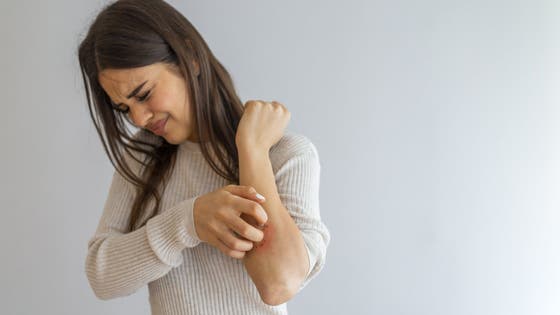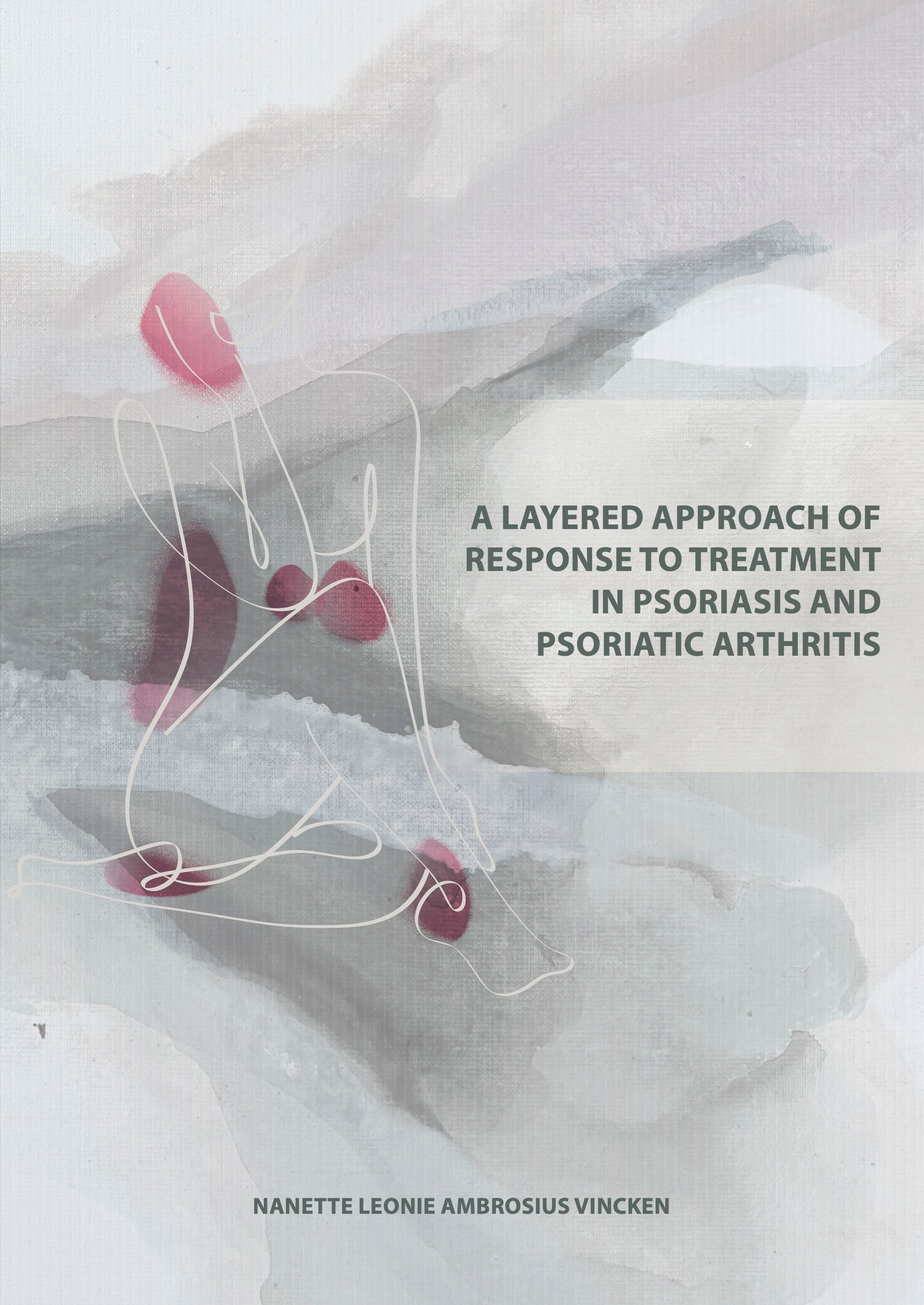Dec 21: A layered approach of response to treatment in psoriasis and psoriatic arthritis

A new biological medicine, tofacitinib, is effective in patients with psoriasis, but only in those with higher IFN-γ levels. In addition, systemic corticosteroids may be a safe option in psoriasis as there is no evidence of an increased risk of flare-ups. Predictive factors of treatment success of methotrexate in atopic dermatitis are not generalizable to psoriasis. These were the main conclusions of the PhD work by Nanetter Vincken (UMC Utrecht) who defended her thesis on December 20, 2023.
Psoriasis is a chronic skin condition affecting approximately 60 million people worldwide, significantly impacting their lives. Its origins are complex, involving genetic and environmental factors, as well as immune system issues. Treatment is challenging and requires a multidisciplinary approach. Both psoriasis and psoriatic arthritis are associated with disruption of the cytokine IL-23/IL-17 and IL-12/IFN-γ immune axes. The studies in the PhD project of Nanette Vincken (Department of Rheumatology & Clinical Immunology, UMC Utrecht) were designed to further unravel the molecular and cellular mechanisms of several treatment options. In addition, the efficacy and safety of both old and new medications were (re-)assessed.
Key results
- Tofacitinib, a new biological medicine, appears effective in patients with psoriasis, but only in those with higher IFN-γ levels.
- Based on a systematic review it was concluded that systemic corticosteroids may be a safe option in psoriasis as there is no increased risk of flare-ups, contrary to previous concerns.
- The research also sheds light on predictive factors for methotrexate treatment in psoriatic arthritis and atopic dermatitis. It was concluded that a predictive model based on four serum proteins that works fine in atopic dermatitis was not generizable to psoriasis.
These findings could pave the way for personalized treatments and contribute to understanding complex conditions like psoriasis and psoriatic arthritis.
Inflammatory skin disease
Psoriasis is a common chronic inflammatory skin disease which affects 1-3 percent of the population. The characteristic feature of established psoriasis is the presence of scaly and persistent skin lesions (primarily on elbows, knees, scalp and lower back) which result from the abnormal activation and differentiation of keratinocytes in the epidermis. Such epidermal changes are the consequence of chronic inflammatory events in the underlying dermal compartment, which involve the infiltration of mononuclear cells and the instauration of a positive inflammatory feedback-loop in the skin. Psoriasis can start at any age, but most often develops in adults under 35 years old, and affects men and women equally. About one in five patients with psoriasis eventually also develop rheumatic complaints (arthritis psoriatica), with, for example inflamed joints (arthritis), pelvic/vertebral inflammation (axial spondyloarthritis), Inflammation of a finger or toe (dactylitis), tendonitis (enthesitis) or one may suffer from pitted nails or nail loosening.
PhD defense

Nanette Vincken (1988, Heerlen) defended her PhD thesis on December 20, 2023 at Utrecht University. The title of her thesis was “A layered approach of response to treatment in Psoriasis and Psoriatic Arthritis.” Supervisor was prof. Jaap van Laar MD PhD (Department of Rheumatology & Clinical Immunology, UMC Utrecht). Co-supervisors were Chiari Angiolilli PhD (Scenic Biotech, Amsterdam) and Paco Welsing PhD (Department of Rheumatology & Clinical Immunology, UMC Utrecht). In 2022, Nanette started her training to become a general practitioner.
